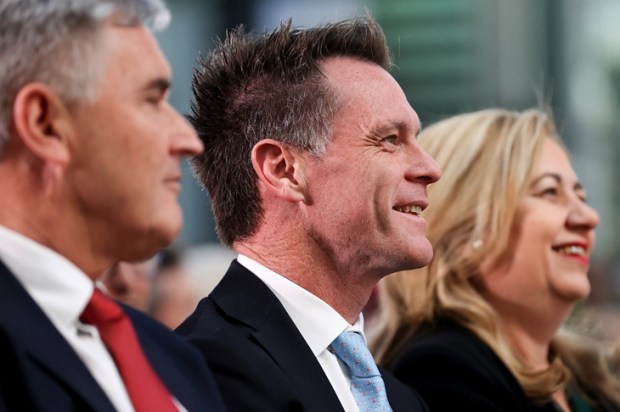Have you ever wondered how different the world would be if the passengers on Rosa Parks’ bus had iPhones? Probably not. I’ll admit it’s a niche hypothetical. Nonetheless, indulge me. Rosa boards the bus and pays the fare. The bus driver notices white passengers standing. He moves the “coloured section” sign from in front of Rosa’s seat and places it in behind her, before ordering her to move to the back of the bus. Rosa tells him where to stick it. We know the rest. After all, it’s the most powerful demonstration of civil disobedience of the 20th century.
Now imagine the ‘iTernative’ universe. A teenager sitting next to Rosa posts a video on Instagram. 100,000 views later, bus emoji’s pop up on Twitter handles in solidarity. Democrats are kneeling along bus aisles. It’s impractical of course. Everyone still needs to manoeuvre through the bus, but when has pragmatism ever stopped a symbolic progressive gesture? #ISitWithRosa is trending. Custom bus-shaped lapel pins adorn politicians’ jackets. Facebook profile picture frames are emblazoned with ‘I sit with Rosa’.
What do I think Rosa would have said about all this? “Talk’s cheap”. Here’s why.
We live in the age of brandivism, or ‘personal branding activism’ for the portmanteau-averse. Social causes have become a convenient way for everyone from Insta-influencers to multinational corporations to show the world just how virtuous they are. And it is as easy as a like, a share or a tweet. Black tiles flooded Instagram after the death of George Floyd on #BlackOutTuesday. Rainbow-filter profile pictures were everywhere on Facebook during the gay marriage debate. I bet you remember the mildly amusing videos from the Ice Bucket Challenge, but you may struggle to remember why you watched CEO’s in ill-fitting active wear pour ice over their heads on company social media accounts (it was for motor neurone disease research, by the way). Never mind. The posts still garnered precious likes, comments and retweets.
It hasn’t always been this way. Social activism is the use of direct and noticeable action to achieve a social or political outcome. Historically it has been associated with three uncomfortable truths. First, it should be risky. Genuine activism means going against a prevailing view to fight for a greater good. Think Salman Rushdie refusing to take the The Satanic Verses off bookshelves despite a fatwa being issued against him because of his belief in freedom of expression. Second, you should understand what you’re advocating for. Before social media, you had to have at least a cursory understanding of the cause de jour. In the last month, just as many women have posted black and white photos of themselves on Instagram because their friends have done it as those who have ‘accepted the challenge’ to promote female empowerment.
Third, the cause should matter. Pankhurst, Mandela, Ghandi, Luther King and so many others fought because if they didn’t, people were at risk of being subjugated, imprisoned or killed. Today, the Q+A brigade will take up arms for gender-neutral Barbie dolls. The tragedy of brandivism is that the courage to speak up (even to one’s own detriment), the humility to understand a problem deeply and the guts to fight for what really matters have been replaced by risk-aversion, ignorance and symbolism. Let’s look at each in turn.
When Australian athlete Peter Norman stood in solidarity with African American athletes John Carlos and Tommie Smith on the podium at the 1968 Olympic Games, he was rewarded with social ostracisation that culminated in the silver medallist not being selected for the Games four years later. Fast forward to Leeds in 2020, and Israel Folau is being vilified for not taking a stand (ironically by standing) amongst a row of kneeling sheep supporting the Black Lives Matter movement. The fact that Folau is of Polynesian descent and has suffered more racial abuse than possibly anyone else on the field was lost on the average Guardian reader. Today, the real risk is not being an activist. The result? More people are afraid to express what they really think. More people think a symbolic gesture is good enough to solve a social problem. And less people are rolling up their sleeves and doing the hard work to improve people’s lives.
Ghandi’s longest hunger strike was 21 days. As an aside, there’s a Wikipedia page titled ‘List of fasts undertaken by Mahatma Gandhi’. What a world we live in! But I digress. I’m confident Mahatma knew why he was forgoing his next meal. It was that knowledge that gave him and his supporters a steely sense of purpose. Brandivism inverts the activist formula by prioritising perception (measured by likes, retweets and comments) over purpose. You certainly don’t need to be a member of the intellectual elite to have a point of view, but you do need to understand the purpose behind the like. When going viral becomes more important than solving a problem, important causes like racial equality morph into imbecilic slogans like #defundthepolice.
But the most insidious threat of brandivism is that it gives people an excuse to run from the fights that really matter. It’s easier to tweet your outrage about personal pronouns than it is to lobby to improve the rates of mental illness in the transgender community. It’s easier to post a sanctimonious reading list telling your followers to educate themselves about white privilege than it is to do community service in a disadvantaged black community. It’s fun to share a video of celebrities piously lecturing us on the Me Too movement. It’s not as fun trying to reduce the rates of domestic violence that endure in Australia and around the world. As our personal brand or corporate identity is ‘awoken’ one like at a time, the real problems remain unaddressed, with the political capital needed to tackle them being spent on an online wave of vain feel-goodery.
I have some, dare I say it, tweetable rules for the recovering brandivist. Don’t post, partake. Don’t ‘@’, act. Don’t share, solve. Don’t comment, create. Don’t like, listen. You won’t be able to measure your virtue in followers and retweets, but you may just do something that makes the world a little bit better. After all, as Rosa Parks may have said, “talk’s cheap”.
Will Kingston is a lawyer-turned management consultant-turned merchant banker. A bit like Malcolm Turnbull, with a fraction less narcissism and a lot less money.
Got something to add? Join the discussion and comment below.
Get 10 issues for just $10
Subscribe to The Spectator Australia today for the next 10 magazine issues, plus full online access, for just $10.


























Comments
Don't miss out
Join the conversation with other Spectator Australia readers. Subscribe to leave a comment.
SUBSCRIBEAlready a subscriber? Log in